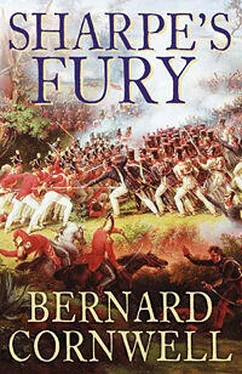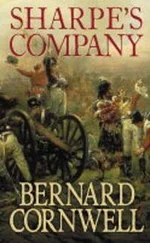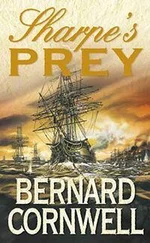Бернард Корнуэлл - Sharpe's Fury
Здесь есть возможность читать онлайн «Бернард Корнуэлл - Sharpe's Fury» весь текст электронной книги совершенно бесплатно (целиком полную версию без сокращений). В некоторых случаях можно слушать аудио, скачать через торрент в формате fb2 и присутствует краткое содержание. Год выпуска: 2006, ISBN: 2006, Издательство: HarperCollins, Жанр: Исторические приключения, на английском языке. Описание произведения, (предисловие) а так же отзывы посетителей доступны на портале библиотеки ЛибКат.
- Название:Sharpe's Fury
- Автор:
- Издательство:HarperCollins
- Жанр:
- Год:2006
- ISBN:0-00-712015-X
- Рейтинг книги:5 / 5. Голосов: 1
-
Избранное:Добавить в избранное
- Отзывы:
-
Ваша оценка:
- 100
- 1
- 2
- 3
- 4
- 5
Sharpe's Fury: краткое содержание, описание и аннотация
Предлагаем к чтению аннотацию, описание, краткое содержание или предисловие (зависит от того, что написал сам автор книги «Sharpe's Fury»). Если вы не нашли необходимую информацию о книге — напишите в комментариях, мы постараемся отыскать её.
Sharpe's Fury — читать онлайн бесплатно полную книгу (весь текст) целиком
Ниже представлен текст книги, разбитый по страницам. Система сохранения места последней прочитанной страницы, позволяет с удобством читать онлайн бесплатно книгу «Sharpe's Fury», без необходимости каждый раз заново искать на чём Вы остановились. Поставьте закладку, и сможете в любой момент перейти на страницу, на которой закончили чтение.
Интервал:
Закладка:
Sharpe had the men use their rifle and musket butts as paddles, but the pontoons were monstrously heavy and their efforts were futile. The raft drifted on southward. A last shell plunged harmlessly into the river, its fuse extinguished instantly by the water. “Paddle, for God’s sake!” Moon snapped.
“They’re doing their best, sir,” Sharpe said. “Broken leg, sir?”
“Calf bone,” Moon said, wincing. “Heard it snap when the horse fell.”
“We’ll straighten it up in a minute, sir,” Sharpe said soothingly.
“You’ll do no such bloody thing, man! You’ll get me to a doctor.”
Sharpe was not certain how he was going to get Moon anywhere except straight down the river, which was curving now about a great rock bluff on the Spanish bank. That bluff, at least, would check the French pursuit. He used his rifle as a paddle, but the raft defiantly took its own path. Once past the bluff the river widened, swung back to the west, and the current slowed a little.
The French pursuers were left behind and the British were finding the going hard on the Portuguese bank. The French cannon were still firing, but they could no longer see the raft so they had to be shooting at the British forces on that western bank. Sharpe tried to steer with a length of scorched, broken plank, not because he thought it would do any good, but to prevent Moon complaining. The makeshift rudder had no effect. The raft stubbornly stayed close to the Spanish bank. Sharpe thought about Bullen and felt a pulse of pure anger at the way in which the lieutenant had been taken prisoner. “I’m going to kill that bastard,” he said aloud.
“You’re going to do what?” Moon demanded.
“I’m going to kill that bastard Frenchman, sir. Colonel Vandal.”
“You’re going to get me to the other bank, Sharpe, that’s what you’re going to do, and you’re going to do it quickly.”
At which point, with a shudder and a lurch, the pontoons ran aground.
THE CRYPT lay beneath the cathedral. It was a labyrinth hacked from the rock on which Cádiz defied the sea, and in deeper holes beneath the crypt’s flagged floor, the dead bishops of Cádiz waited for the resurrection.
Two flights of stone steps descended to the crypt, emerging into a large chapel that was a round chamber twice the height of a man and thirty paces wide. If a man stood in the chamber’s center and clapped his hands once, the noise would sound fifteen times. It was a crypt of echoes.
Five caverns opened from the chapel. One led to a smaller round chapel at the farthest end of the labyrinth, while the other four flanked the big chamber. The four were deep and dark, and they were connected to one another by a hidden passageway that circled the whole crypt. None of the caverns was decorated. The cathedral above might glitter with candlelight and shine with marble and have painted saints and monstrances of silver and candlesticks of gold, but the crypt was plain stone. Only the altars had color. In the smaller chapel a virgin gazed sadly down the long passage to where, across the wider chamber, her son hung on a silver cross in never-ending pain.
It was deep night. The cathedral was empty. The last priest had folded his scapular and gone home. The women who haunted the altars had been ushered out, the floor had been swept, and the doors locked. Candles still burned, and the red light of the eternal presence glowed under the scaffolding that ringed the crossing where the transept met the nave. The cathedral was unfinished. The sanctuary with its high altar had yet to be built, the dome was half made, and the bell towers not even started.
Father Montseny had a key to one of the eastern doors. The key scraped in the lock and the door hinges squealed when he pushed it open. He came with six men. Two of them stayed close to the unlocked cathedral door. They stood in shadow, hidden, both with loaded muskets and with orders to use them only if things became desperate. “This is a night for knives,” Montseny told the men.
“In the cathedral?” one of the men asked nervously.
“I will give you absolution for any sins,” Montseny said, “and the men who must die here are heretics. They are Protestants, English. God will be gladdened by their deaths.”
He took the remaining four men to the crypt and, once in the main chamber, he placed candles on the floor and lit them. The light flickered on the shallow-domed ceiling. He put two men in one of the chambers to the east while he, with the remaining pair, waited in the darkness of the chamber opposite. “No noise now!” he warned them. “We wait.”
The English came early as Father Montseny had supposed they would. He heard the distant squeal of the hinges as they pushed open the unlocked door. He heard their footsteps coming down the cathedral’s long nave and he knew that the two men he had left by the door would have bolted it now and would be following the English toward the crypt.
Three men appeared on the western steps. They came slowly, cautiously. One of them, the tallest, had a bag. That man peered into the big round chamber and saw no one. “Hello!” he shouted.
Father Montseny tossed a packet into the chamber. It was a thick packet, tied with string. “What you will do,” he said in the English he had learned as a prisoner, “is bring the money, put it beside the letters, take the letters, and go.”
The man looked at the black archways leading from the big candlelit chamber. He was trying to decide where Montseny’s voice had come from. “You think I’m a fool?” he asked. “I must see the letters first.” He was a big man, red-faced, with a bulbous nose and thick black eyebrows.
“You may examine them, Captain,” Montseny said. He knew the man was called Plummer and that he had been a captain in the British army, and now he was a functionary in the British embassy. Plummer’s job was to make certain the embassy’s servants did not steal, that the gratings on the windows were secure, and that the shutters were locked at night. Plummer was, in Montseny’s opinion, a nonentity, a failed soldier, a man who now came anxiously into the ring of candles and squatted by the package. The string was tough and knotted tight and Plummer could not undo it. He felt in his pocket, presumably looking for a knife.
“Show me the gold,” Montseny ordered.
Plummer scowled at the peremptory tone, but obliged by opening the bag he had placed beside the package. He took out a cloth bag that he unlaced, then brought out a handful of golden guineas. “Three hundred,” he said, “as we agreed.” His voice echoed back and forth, confusing him.
“Now,” Montseny said, and his men appeared from the dark with leveled muskets. The two men Plummer had left on the steps staggered forward as Montseny’s last two men came down the stairs behind them.
“What the hell are you…” Plummer began, then saw the priest was carrying a pistol. “You’re a priest?”
“I thought we should all examine the merchandise,” Montseny said, ignoring the question. He had the three men surrounded now. “You will lie flat while I count the coins.”
“The devil I will,” Plummer said.
“On the floor,” Montseny spoke in Spanish, and his men, all of whom had served in the Spanish navy and had muscles hardened by years of grueling work, easily subdued the three and put them facedown on the crypt floor. Montseny picked up the string-bound package and put it in his pocket, then pushed the gold aside with his foot. “Kill them,” he said.
The two men accompanying Plummer were Spaniards themselves, embassy servants, and they protested when they heard Montseny’s order. Plummer resisted, heaving up from the floor, but Montseny killed him easily, sliding a knife up into his ribs and letting Plummer heave against the blade as it sought his heart. The other two died just as quickly. It was done with remarkably little noise.
Читать дальшеИнтервал:
Закладка:
Похожие книги на «Sharpe's Fury»
Представляем Вашему вниманию похожие книги на «Sharpe's Fury» списком для выбора. Мы отобрали схожую по названию и смыслу литературу в надежде предоставить читателям больше вариантов отыскать новые, интересные, ещё непрочитанные произведения.
Обсуждение, отзывы о книге «Sharpe's Fury» и просто собственные мнения читателей. Оставьте ваши комментарии, напишите, что Вы думаете о произведении, его смысле или главных героях. Укажите что конкретно понравилось, а что нет, и почему Вы так считаете.







